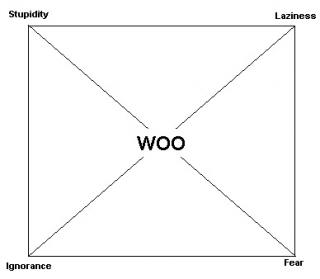I do get the difficulty, but I'm not sure how to pierce it. I think we agree that our beliefs about things that do not exist can affect our behavior and hence reality. But the question seems to be about whether our beliefs, in and of themselves, are justified. In other words, if I react to something which does not exist, am I always foolish or mistaken to do so? I'd say not at all.
Consider a common enough occurrence. You and I are discussing whether or not to go to the movies this coming Saturday night. They will be showing a movie we both want to see and we can go at 4:30pm and eat after or go at 9:00pm and eat before. We need to purchase tickets for one showing or the other online today to get a discount - something we both agree about.
I'm arguing for the earlier time, because I think the cinema will be crowded for the later show, and I prefer not to see the movie with a rowdy crowd. You, on the other hand, point out the restaurant will be crowded if we eat later on, and we should eat first to avoid having to wait for a table.
Common enough situation. But consider what's going on here. By deciding on one course of action over another, we are eliminating one possible future. In fact, both "futures" do not exist at the time we are discussing the choices. And yet, our beliefs - justified beliefs, since we are familiar with crowds, restaurants, and movies - about these non-existent situations influence our current behavior: which tickets to buy.
And, to make things even more interesting, our choice, based on our belief about something that doesn't exist, actually creates (or tends to) what eventually does exist. But no matter which we choose, one of our future states will never exist at all. Somewhere in that mix I propose that the imaginary, the non-existent, touches reality and influences it thereby.


